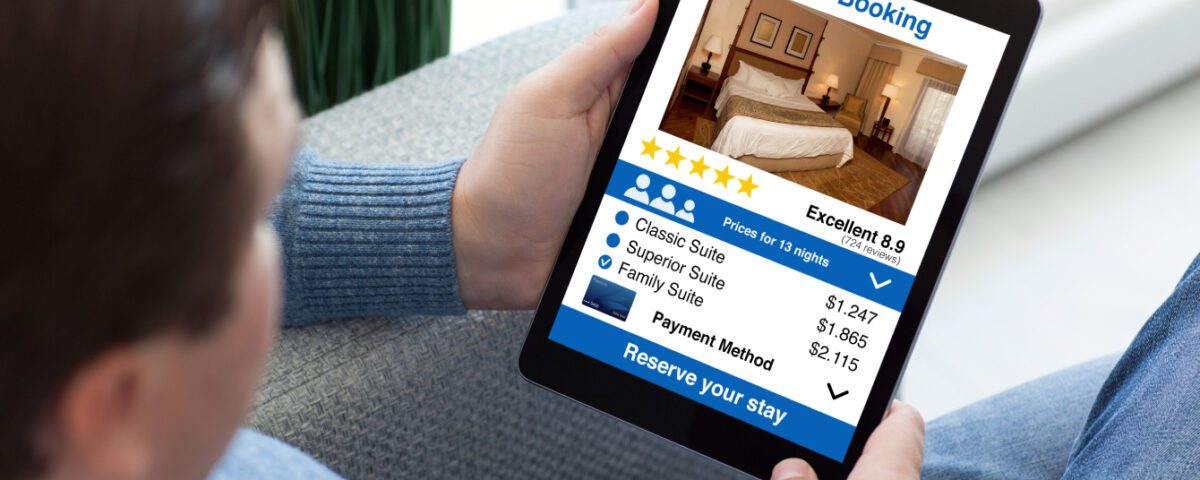
The Impact of Reviews on Travel & Tourism Businesses
Thursday 19th June 2025
 by Beth Perrin
by Beth Perrin
Share
It likely won’t come as a surprise that hotels are the second-most affected industry when it comes to customer reviews, falling only behind restaurants which take the top spot. 96% of travellers consider reviews important during the research phase of planning a holiday and 83% say that reviews play an essential role in their final booking decision. As review management experts, we’re passionate about the impact of consumer feedback, which is why we’re taking a look at the influence of reviews on the travel industry today.
Travel Review Platforms
Let’s start with the basics - which websites are travellers using to leave and read reviews? First of all, here’s a selection of travel-specific platforms:
• Tripadvisor
The world’s largest travel site has a staggering 463 million monthly users and is home to over 1 billion reviews.
• Booking.com
With over 28 million listings, including hotels, apartments and holiday homes, Booking.com only accepts reviews from users who have made verified bookings via its website, which helps add trust and credibility.
• Expedia
This is one of the oldest and largest online travel agencies. After guests stay at a property booked on Expedia, they automatically receive an email invitation to submit a review.
• Trivago
Although it doesn’t have its own review publishing tool, Trivago displays reviews from third-party sites like Expedia and Hotels.com and bases its own rating index on those scores.
• Airbnb
Despite primarily being a booking platform, Airbnb also contains guest reviews. If you’re the host of one of Airbnb’s 7 million self-catering holiday properties, it’s important to keep track of what your guests are saying.
However, tourists aren’t only leaving reviews on industry-specific sites. Don’t forget that the following platforms are also popular choices for holiday feedback:
The world’s favourite search engine also doubles up as a review platform, with Google reviews making up 73% of all online reviews! Your star rating and reviews are displayed beside your business listing in Maps and Search.
The most popular social media platform offers a unique approach to reviews, with the option to ‘recommend’ or ‘not recommend’ a business. Facebook generates a star rating for a page based on the ratio of recommendations to non-recommendations.
Reviews Impact Bookings
72% of new customers won’t book a getaway until they’ve spent some time reading other travellers’ reviews and over half of Tripadvisor users won’t choose a hotel or holiday property that has zero reviews, demonstrating the direct impact they can have on bookings. Positive reviews provide reassurance and make people feel comfortable that they are making the right decision, while negative reviews act as a warning sign, notifying readers that they should steer clear in order to avoid experiencing the same issues as previous guests.
Depending on the nature of the trip, a holiday can be a huge investment (the average cost of a two-week break for a UK family of four is £4792!), so it makes total sense that prospective travellers want to know what they can expect from a location before parting with their hard-earned money. Genuine, authentic feedback from other travellers is one of the best ways to find this out, with 84% of people confirming that they trust peer recommendations more than any other source of advertising.
Keep an Eye on Your Star Rating
Although the main content of your reviews is what matters most, you should keep an eye on your star rating too. When searching online for a place to stay, 88% of travellers will filter out hotels with an average rating below 3 out of 5, with a further 32% choosing to filter out those with a rating below 4 out of 5.
Interestingly, when people see a business with a perfect 5 star rating, they are often skeptical for several reasons. They may be suspicious that the reviews are fake, that they have been left by friends or family members of the business owner - or that reviews with less than 5 stars have been deleted by the business. 4.2 to 4.5 is commonly viewed as the most trustworthy star rating bracket, as consumers see this as authentic enough to not be “too good to be true”, but still high enough to reflect the brand in a positive way.

Beware of Fake Reviews
Speaking of fake feedback - around 8% of the 31.1 million reviews submitted to Tripadvisor in 2024 were found to be fake, making them a fairly significant concern within this industry. Remain vigilant and never be tempted to write a positive review for your own business (or a negative one for a competitor!), as this can greatly harm your credibility, as well as reducing customer trust and potentially leading to your account getting flagged or even deleted.
Responding to Your Reviews
Once you have requested and collected reviews from your guests, it’s necessary to acknowledge and respond to them rather than simply ignoring them. A massive 96% of people read businesses’ replies to reviews, and 4 out of 5 believe that hotels that respond to feedback care more about their guests than others.
This process can involve thanking satisfied customers for their kind comments and incentivising repeat visits, or working with unhappy travellers to resolve their complaints and repair your relationship with them. 7 in 10 people agree that a brand’s response to a review can change their perception of it, providing a great opportunity for you to turn things around if a guest has had an unsatisfactory experience.
As well as improving your standard of customer service, responding to reviews also presents some major SEO benefits and can help increase your local search ranking. Google recommends that you should: “Respond to reviews that users leave about your business”, because: “When you reply to reviews, it shows that you value your customers and their feedback”.
Responses are one of Google’s most important review signals, alongside quantity (how many reviews your business has), diversity (how many different sources your reviews are coming from) and velocity (the frequency at which your business receives new reviews within a confined time period), meaning that your business will be lifted higher in Google’s search results if you’re replying to your reviews on a regular basis.
Summary
Overall, it’s clear to see just how influential reviews are on the travel industry. If you’re the owner of a hotel, B&B, self-catering property or tourist attraction and are struggling to keep up with all of your inbound feedback, our dedicated review management team is here to ease your workload. We’ll monitor and interact with each review, creating tailored responses for all of your customers.
Whether their reviews are positive or negative, lengthy and detailed, or a guest has simply left a star rating with no further information, we’ll take the time to show that your business is listening and is on hand to resolve any problems. We’ll work with you to develop a bespoke complaint management strategy, and can supply reviewers with additional contact details or external feedback forms if you wish to escalate their comments to a higher level.
Plus, our comprehensive monthly reports will provide you with accurate data and insights regarding your brand sentiment and any recurring trends throughout your reviews, which can be particularly helpful if your business has multiple locations. Contact us now to get started!








